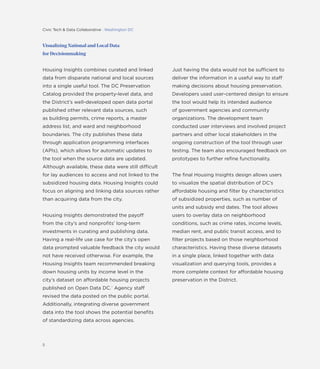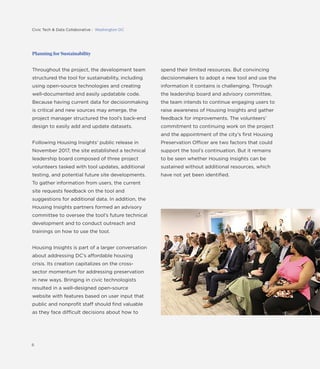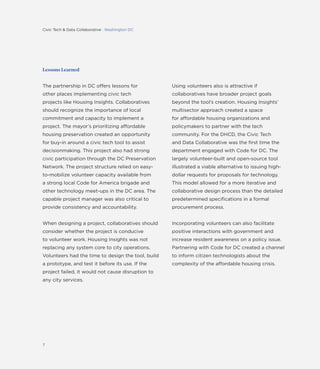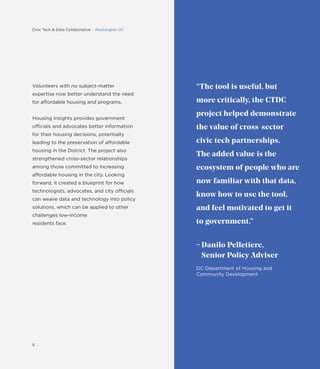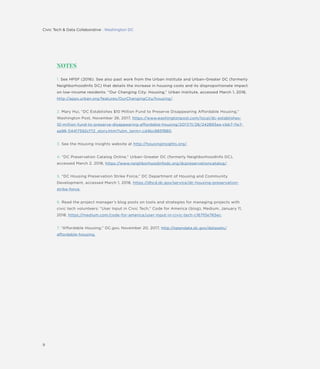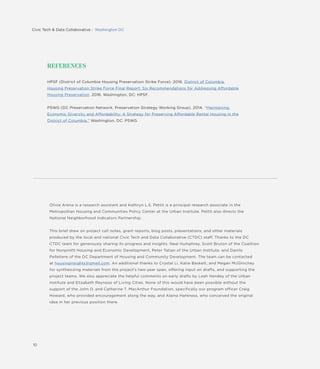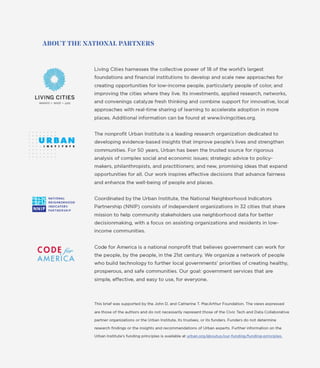The document summarizes the development of the Housing Insights tool in Washington DC, which was created through a partnership between local government, non-profits, and civic technologists. The tool combines housing and neighborhood data to help stakeholders identify affordable housing units at risk of being lost and target preservation efforts. A paid project manager oversaw over 100 volunteers who contributed over 2,200 hours to build the open source tool. User feedback was incorporated throughout the process. The tool and partnership provide a model for collaboratively addressing policy issues through data and technology.
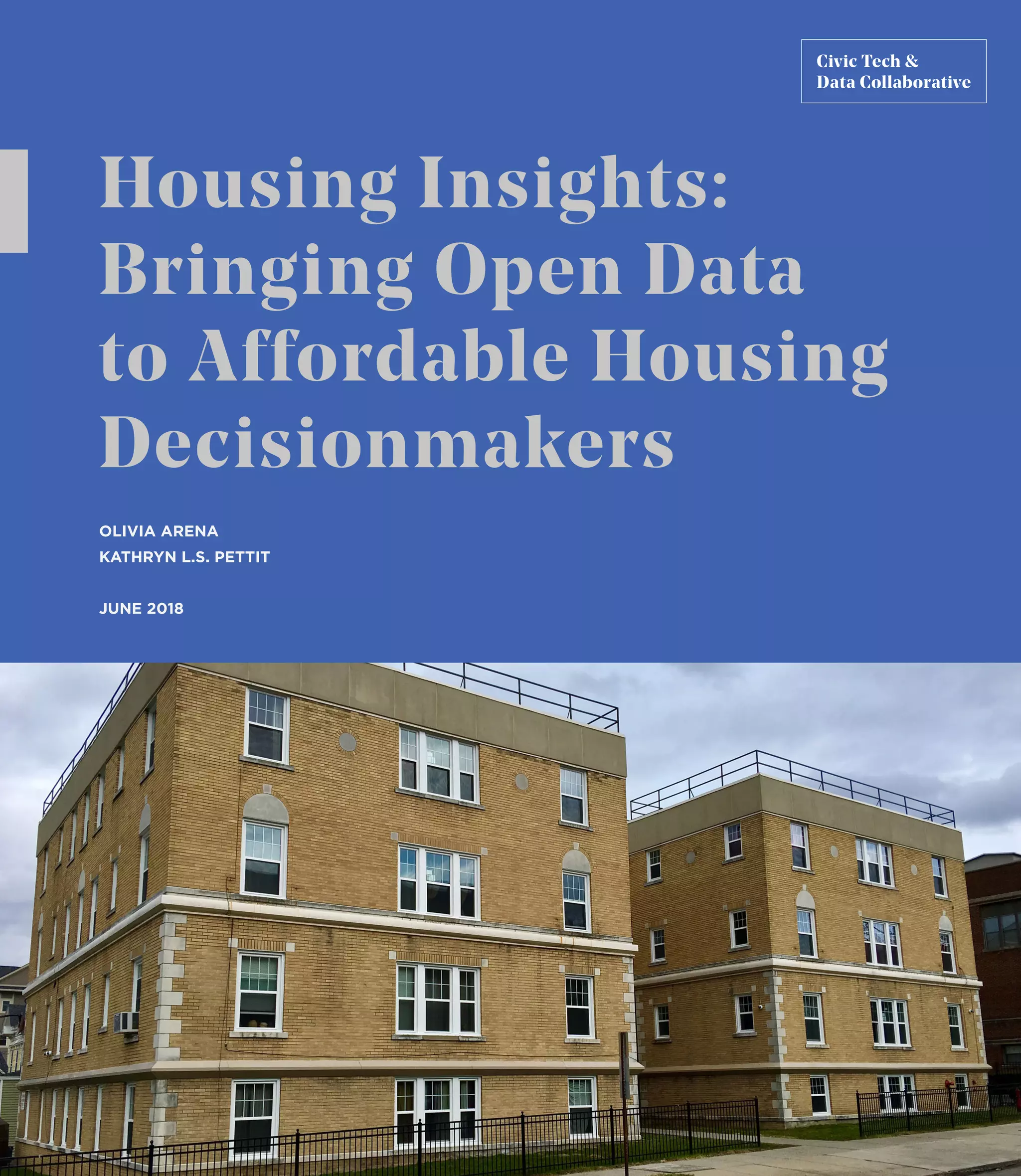
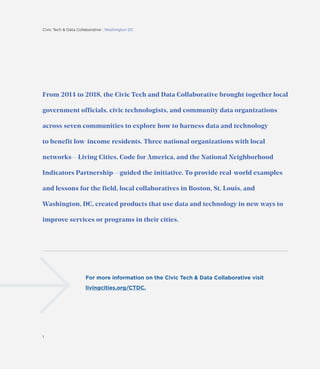
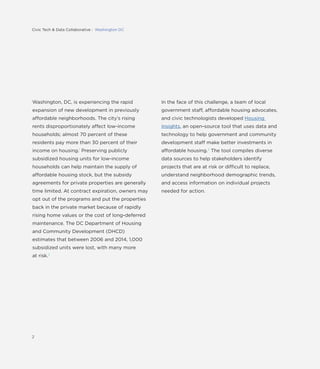
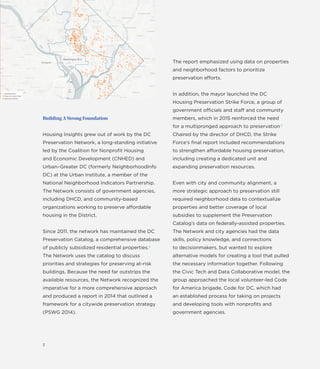
![4
Assembling Local Talent to Preserve
Affordable Housing
The national project funded a small planning
grant for these partners to think through
the structure of the project. The final design
emphasized each of their talents to guide
the tool’s development. CNHED provided
knowledge about how local government and
nonprofit staff made decisions about subsidized
housing properties. It also hired and managed
the project manager. Urban–Greater DC lent its
expertise and resources on neighborhood and
housing data, and Code for DC adopted the
project and provided a platform for volunteer
recruitment. DHCD staff participated in user
interviews and prototype testing.
On the advice of the national advisers, the
DC team hired a paid project manager to lead
the design and building of the tool and to
manage volunteers and project partners. The
project team selected a candidate who had
previously run a software start-up and could
channel his software development experience
into effectively managing the work. The project
manager found out about the opportunity from
a Code for DC meet-up, so he was familiar
with the brigade structure and leadership.
The project marked the first time Code for DC
executed a project with a paid project manager
to oversee volunteers, coordinate with partners,
and guide tool development.
The hybrid structure of volunteer developers
and a part-time manager helped harness
“[The CTDC project] provided a model for
how brigades can ensure accountability and
consistency in their work with partners.
Without proper resourcing, it can be
difficult for volunteers alone to complete a
high-impact project. Having a paid project
manager can help oversee the staffing of
projects, distribution of work, serve as a point
of contact for outside organizations, and help
reduce burnout for volunteer leaders.”
- Christopher Whitaker,
Brigade Program Manager
Code for America
the brigade’s power while ensuring the project’s
completion. More than 100 brigade volunteers
contributed an estimated $84,000 worth of
development time (2,200 hours). The early part
of the project focused on volunteer recruitment,
regularly onboarding new project contributors
and expanding the team of regular contributors.
As the project launch drew closer, to make
best use of volunteer and project manager
time, the focus shifted to executing with the
existing volunteer team. The project manager
incorporated coding that was straightforward
to make ongoing volunteer participation easier
and make revising code in the future more
efficient. He also compartmentalized the tool’s
development to allow volunteers with different
skills to move forward with work in parallel.6
Civic Tech & Data Collaborative : Washington DC](https://image.slidesharecdn.com/02dccsfinalupdate-180620171602/85/CTDC-DC-Case-Study-5-320.jpg)
